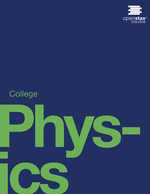 If you are curious about the physical universe this free introductory College Physics textbook from OpenStax College may be just the thing you need. It is peer-reviewed by educators and has the look and feel of a classic illustrated textbook but with a Creative Commons Attribution 3.0 license. It can be downloaded, edited, customized, and reused, or you can just go ahead and dedicate some time to expanding your mind with conceptual questions, problems and exercises online.
If you are curious about the physical universe this free introductory College Physics textbook from OpenStax College may be just the thing you need. It is peer-reviewed by educators and has the look and feel of a classic illustrated textbook but with a Creative Commons Attribution 3.0 license. It can be downloaded, edited, customized, and reused, or you can just go ahead and dedicate some time to expanding your mind with conceptual questions, problems and exercises online.
You may also be interested in Introduction to Sociology, and there are more titles to come.
Happy learning!
Image from OpenStax College


